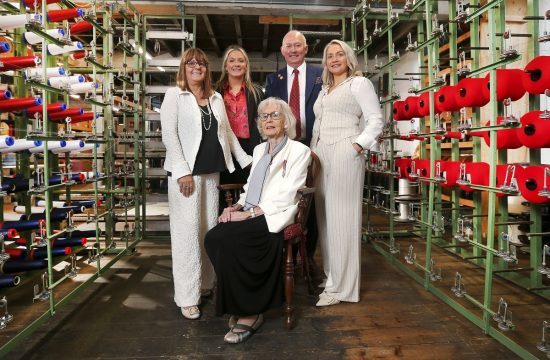Hundreds more organisations, from recycling plants to large data centres, to receive money off their energy bills.
Businesses using licence-exempt energy offered support through new government scheme. Backdated support also extended to off-grid organisations using licence-exempt energy to match support others received this winter.
Steelmakers, recycling plants and manufacturers are among the hundreds of businesses that will benefit from a new scheme launched by the government today to help with the cost of their energy bills.
Most businesses across the country are receiving money off their energy costs automatically, thanks to an unprecedented support package from the government totalling around £7 billion so far – amounting to over £35m a day.
However, a selection of companies – including some large chemical plants and those providing critical national infrastructure – require a bespoke support scheme to subsidise energy from a licence-exempt supplier.
Some suppliers can benefit from licence exemptions for various reasons, for example if they operate on a small scale with limited impact on the electricity system. Companies may use a licence-exempt supplier because they are based on a site with a private network or operate directly within the wholesale energy market.
From today these companies – known as Non-Standard Customers – can now apply for help with their bills from April 2023 to March 2024, similar to the support others will receive under the government’s Energy Bills Discount Scheme.
For some, these discounts could amount to thousands of pounds off their energy bills and provide vital help with their cashflow, following the impact of Putin’s illegal war in Ukraine on global energy costs. The move comes as the government continues to deliver on its promise to protect jobs, grow the economy and halve inflation.
Minister for Energy Consumers and Affordability Amanda Solloway said, “This country has a proud industrial history and one that we must protect from the volatile energy market, following Putin’s illegal war in Ukraine.
“Energy prices are falling, but we must continue to do all we can to help our vital UK industries – from recycling to manufacturing and steel.
“That’s why we’re going above and beyond to make sure all businesses can access our support, even if they get their energy via non-standard routes – and I urge these customers to check their eligibility today.”
Director of Policy at the Association for Renewable Energy & Clean Technology (REA) Frank Gordon, said, “The REA welcomes the news that more companies are receiving support through both the EBRS and EBDS non-standard cases scheme. It is encouraging to see more businesses than previously, now be supported under EBDS in the future. In the longer term, businesses can make considerable bill savings by moving to renewable energy supplies, such as by generating their own renewable energy on-site.”
Some of these businesses and organisations that use a licence-exempt supplier can also from today apply for backdated support under the Non-Standard Cases Energy Bill Relief Scheme.
Those that get their licence-exempt supply from the public grid were given access to this support from October 2022 to March 2023. The scheme has now been extended to cover the same cohort as the Non-Standard Cases Energy Bills Discount Scheme. This means companies that get a licence-exempt supply from waste, anaerobic digestion and biomass plants will now be able to retrospectively apply for energy discounts to match support others received this winter.
The government is urging companies to check their eligibility on gov.uk, as both suppliers of licence-exempt energy and their customers can apply for the new schemes via the government website from today. Payments will be made either to the provider to pass on or directly to the customer depending on who made the application.
The new rate of support provided through the Energy Bills Discount Scheme, which launched on 1 April, reflects wholesale energy prices falling to their lowest level since before Russia’s illegal invasion of Ukraine. Higher levels of support are offered to eligible energy and trade intensive industries and heat network operators – with some businesses expected to save 20% of predicted wholesale energy costs.



























